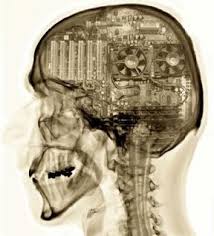It has been said that in all our technological glory, we only know five percent of what we will know in the next 50 years. In other words, 50 years from now–95 percent of what we will know, will have been discovered over that last 50 years. This kind of makes you wonder where we will really be in the next six years, considering the impressive list of discoveries that have already been suggested for the year 2020 and beyond.
Cyber-Software
 By 2020, almost every electronic device will be capable of universal language translation. Thanks to accelerated 3D software, we will no longer be limited to web-cams and chat rooms, as we will prefer to use our avatar’s digital image to meet with a friend’s to shop, travel the world, and engage in romantic dating. Such popular websites as Second Life have already opened the door to this technology, but these interactions will only become more lifelike and commonplace.
By 2020, almost every electronic device will be capable of universal language translation. Thanks to accelerated 3D software, we will no longer be limited to web-cams and chat rooms, as we will prefer to use our avatar’s digital image to meet with a friend’s to shop, travel the world, and engage in romantic dating. Such popular websites as Second Life have already opened the door to this technology, but these interactions will only become more lifelike and commonplace.
Fingerprint and iris (eye) scanning may replace the common wallet in the distant future. However, most all consumers will be using wallet phones by 2020. These combination smart phones, credit cards, electronic car keys, glasses (Google Glass), and roaming advertisement billboards, will be an essential to everyday life.
Health And Wellness
Nanotechnology in the medical field will allow drugs to be distributed to specific areas of the body where they will do the most good. This will decrease the amount of side effects normally caused by chemotherapy. Synthetic blood made from “plastic” hemoglobin will save lives, robots will aid surgeons in delicate procedures, and broken bones will be healed in as little as 24-hours thanks to protein building bone injections.
According to Frank Sowa, the futurist and CEO of The Xavier Group, doctors will be able to fully regenerate artificial limbs in 2022. By 2025, criminals may have the choice to undergo emotion control chip implant therapy to correct behavioral disorders. Infectious diseases will be eliminated by 2028, and artificial brain implants will become a reality by 2030. As far as advancements in dentistry go, nanobots could be added to your toothpaste and programmed to attack plaque (2020).
Personal Computers
 In terms of information saved and spent, we can expect our personal computer storage needs to escalate from today’s 128 gigabytes to 130 terabytes over the next six years. In 2020, a run of the mill $1,000 quantum computer will be capable of harnessing the power of atoms and molecules. In other words, it will contain the raw processing potential of the human brain.
In terms of information saved and spent, we can expect our personal computer storage needs to escalate from today’s 128 gigabytes to 130 terabytes over the next six years. In 2020, a run of the mill $1,000 quantum computer will be capable of harnessing the power of atoms and molecules. In other words, it will contain the raw processing potential of the human brain.
Once these systems have been fully integrated by 2050, the raw processing power of that same $1,000 system, will match the neural computing power of the entire world. Which in terms of the population by then, will be about 9 billion brains.
Artificial Intelligence (A.I.)
Many experts predict that A.I. is on its way, while Dr. Stephen L. Thaler, President & CEO of Imagination Engines, claims it is already here. Despite countless warnings from futuristic films, such as Terminator and iRobot, we are moving towards a world of A.I., which will one day control our finances, health, education, environment, and politics. “This is not the beginning of a war waged by machines against men, or vice versa,” says Dr. Thaler, reassuringly.
Dr. Thaler is the father of the Creativity Machine, which is an Artificial Intelligence program capable of composing music, inventing products (Oral-B CrossAction toothbrush), and even training robotic cockroaches. However, the most interesting concept is that while Dr. Thaler may be the mastermind behind the machine, the ‘machine’ has since taken over and is now the mastermind behind itself. What will it (the computer) think of next?
“2020—will be business as usual for the human race,” says Dr. Stephen L. Thaler. “The battle for gold and pleasure, lots of new gadgets, conflicts galore, and plenty of spin control to convince us that we are in a new and wonderful age, helping to channel the gleaming yellow metal in the right directions.”
About Dr. Eric J. Leech
Eric has written for over a decade. Then one day he created Urbasm.com, a site for every guy.
